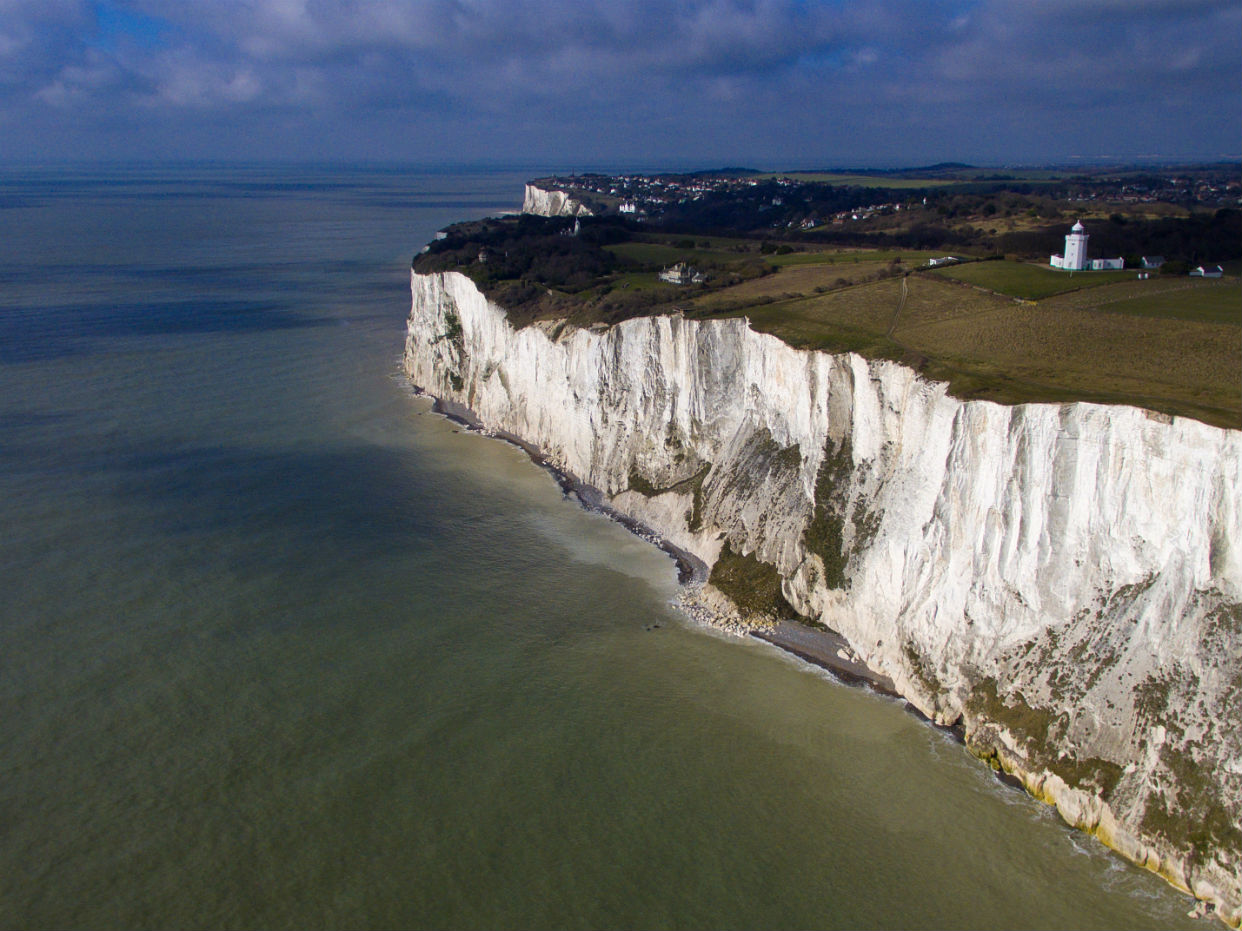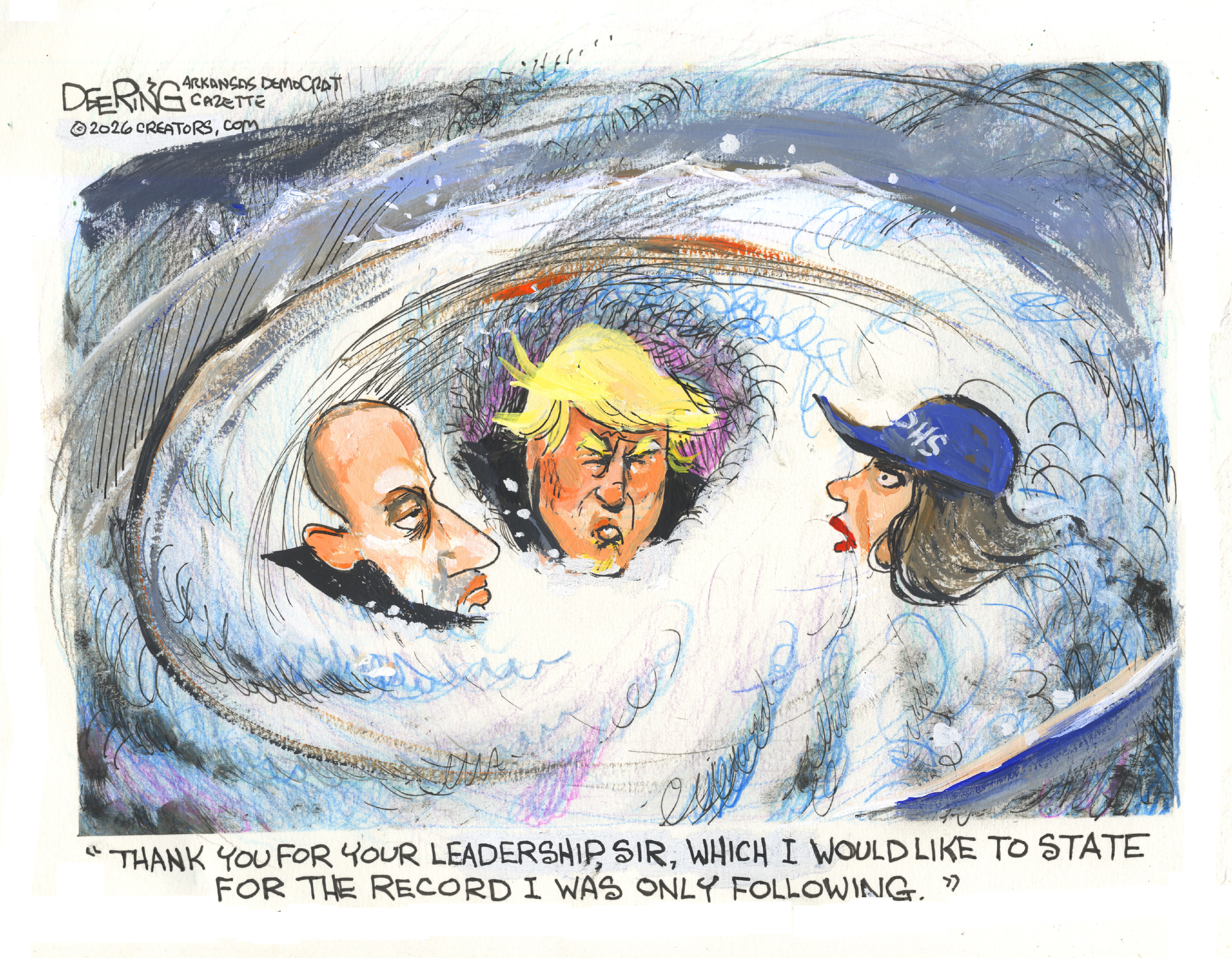Is a ‘no-deal’ Brexit actually better than a bad deal?
In Depth: what would happen if Britain crashed out of the EU without a formal agreement

A free daily email with the biggest news stories of the day – and the best features from TheWeek.com
You are now subscribed
Your newsletter sign-up was successful
With Brexit negotiations deadlocked, the possibility of Britain crashing out of the EU without a formal agreement has become a real possibility - but what would a “no-deal” Brexit actually look like?
Sainsbury’s foresees food shortages and a 22% tax hike on food imported from the EU, reports The Sunday Times, while the Port of Dover warns snarl-ups caused by new customs checks could see 17-mile tailbacks of lorries.
“The risks of airlines ceasing to fly, lorries backing up outside ports and hospitals losing access to radioactive materials may be exaggerated, but they are real even so,” says The Economist.
The Week
Escape your echo chamber. Get the facts behind the news, plus analysis from multiple perspectives.

Sign up for The Week's Free Newsletters
From our morning news briefing to a weekly Good News Newsletter, get the best of The Week delivered directly to your inbox.
From our morning news briefing to a weekly Good News Newsletter, get the best of The Week delivered directly to your inbox.
If there is no arrangement by 29 March 2019 under Article 50 of the Lisbon Treaty, bilateral trade agreements fall away. The 1.2 million Britons living in the EU, and a further three million EU citizens residing in Britain, could be stripped of their rights, and the fragile peace along Northern Ireland’s border with its southern neighbour could collapse.
“Much would then depend on how long both sides have had to prepare for this”, the BBC says, but the consequences of having no deal “would affect almost every aspect of life”.
Here is a glimpse of British life in a “no-deal” future.
Currency collapse
A free daily email with the biggest news stories of the day – and the best features from TheWeek.com
Sterling would go into free fall in a no-deal “economic disaster”, predicts Business Insider.
As a case in point, the pound dropped to a four-week low against the euro last week when EU negotiator Michel Barnier said talks had hit a deadlock.
“Investors are deeply concerned about Prime Minister May’s position that ‘no deal is better than a bad deal’,” Reuters says.
Trade and tariffs
A lot has been written about the UK’s desire for an extension of the UK-EU trade agreement and access to the EU’s customs, VAT and excise duty regime for a period post-March 2019. Without a UK-EU trade deal, Britain would be subject to World Trade Organisation (WTO) rules.
Sainsbury’s chairman David Tyler told The Sunday Times that Britons would have to pay higher tariffs on imported food - and the tax hikes wouldn’t stop there. Taxes on many EU industrial products would rise by between 2% and 3%, the duty on imported cars would increase by 10%, and many imported agricultural products could be taxed at up to 40%, according to the BBC.
Leave supporters say that new trade deals could be agreed immediately on leaving the EU, including a deal with the US, but former US presidential candidate Hillary Clinton dismissed that prospect yesterday in light of problems in the Nafta free trade deal.
“You’re making a trade deal with someone [Donald Trump] who says he doesn’t believe in trade, so I’m not quite sure how that’s going to play out over the next few years,” Clinton told the BBC’s Andrew Marr in an interview aired on Sunday.
Chaos at the border
HMRC estimates that in the event of a no-deal Brexit, about 130,000 British businesses that export to the EU would have to make customs declarations for the first time post-March 2019, leading to congestion at ports and other entry points.
Although HMRC’s new customs computer system is scheduled to be up and running by 2019, a National Audit office report in July warned that the upgrade may not be ready in time, creating a potential “horror show”.
Job losses
Brexiteers argue that London’s financial services sector could gain market share when the UK begins regulating services, but there is also a threat of widespread economic damage as companies quit the capital.
“Already there is a steady trickle of highly paid City jobs haemorrhaging to the Continent,” Jeremy Warner writes in The Sunday Telegraph. “In the event of no-deal, this could fast turn into a quite serious exodus.”
Northern Ireland's border
The border between Northern Ireland and the Republic of Ireland has been singled out as another major concern, “with serious ramifications for the Northern Ireland peace process”, the BBC says.
“Any reintroduction of the border, however much people think it can be managed or mitigated, will represent a reversal of the direction of travel of the peace process of the last 20 years”, and would be symbolic of the “darker days”, said the Republic’s deputy PM, Frances Fitgerald, reports The Irish Times.
Regulations
EU regulations governing everything from aircraft to pharmaceuticals would have to be replaced, updated or adopted by the UK. In a worst-case scenario, cancer patients could face delays getting new drugs.
And according to Ryanair boss Michael O’Leary, all UK planes headed to Europe would be immediately grounded for weeks or even months if the UK left the EU without a deal.
However, Transport Secretary Chris Grayling denied O’Leary’s claim. Appearing on the BBC’s The Andrew Marr Show yesterday, Grayling said: “Does anybody seriously think the Spanish government - which would see hotel bookings collapse in 2019 - is going to intervene to stop the planes flying? Of course they’re not.”
European Court of Justice
Many people believe that should Britain leave the EU without a deal, the UK would no longer have to abide by European law - but is that really the case? Theresa May’s pledge to take back “control of our laws” was understood to mean the European Court of Justice (ECJ) would no longer influence British law.
But if Britain wants a trade deal with Europe, with “frictionless” borders, a “deep and special” partnership and a “transitional” deal that mimics the current arrangement, that isn’t compatible with a clean break from the ECJ, legal experts say.
An accidental no-deal
“A no-deal scenario would be bad for everyone,” European Council leader Donald Tusk said earlier this year, “but above all for the UK.”
Some have questioned whether May’s threat that “no deal is better than a bad deal” is little more than posturing aimed at getting EU negotiators to bend. If so, it could be a risky bluff.
“Even if a Brexit with no deal is unlikely to happen deliberately, it could do so by accident,” warns The Economist.
-
 6 gorgeous homes in warm climes
6 gorgeous homes in warm climesFeature Featuring a Spanish Revival in Tucson and Richard Neutra-designed modernist home in Los Angeles
-
 Russia’s ‘cyborg’ spy pigeons
Russia’s ‘cyborg’ spy pigeonsUnder the Radar Moscow neurotech company with Kremlin-linked funding claims to implant neural chips in birds’ brains to control their flight, and create ‘bio-drones’
-
 Political cartoons for February 8
Political cartoons for February 8Cartoons Sunday’s political cartoons include going down the drain, American history, and more
-
 The high street: Britain’s next political battleground?
The high street: Britain’s next political battleground?In the Spotlight Mass closure of shops and influx of organised crime are fuelling voter anger, and offer an opening for Reform UK
-
 Biggest political break-ups and make-ups of 2025
Biggest political break-ups and make-ups of 2025The Explainer From Trump and Musk to the UK and the EU, Christmas wouldn’t be Christmas without a round-up of the year’s relationship drama
-
 ‘The menu’s other highlights smack of the surreal’
‘The menu’s other highlights smack of the surreal’Instant Opinion Opinion, comment and editorials of the day
-
 Is a Reform-Tory pact becoming more likely?
Is a Reform-Tory pact becoming more likely?Today’s Big Question Nigel Farage’s party is ahead in the polls but still falls well short of a Commons majority, while Conservatives are still losing MPs to Reform
-
 Taking the low road: why the SNP is still standing strong
Taking the low road: why the SNP is still standing strongTalking Point Party is on track for a fifth consecutive victory in May’s Holyrood election, despite controversies and plummeting support
-
 Is Britain turning into ‘Trump’s America’?
Is Britain turning into ‘Trump’s America’?Today’s Big Question Direction of UK politics reflects influence and funding from across the pond
-
 What difference will the 'historic' UK-Germany treaty make?
What difference will the 'historic' UK-Germany treaty make?Today's Big Question Europe's two biggest economies sign first treaty since WWII, underscoring 'triangle alliance' with France amid growing Russian threat and US distance
-
 Entente cordiale: will state visit help UK-French relations get over Brexit?
Entente cordiale: will state visit help UK-French relations get over Brexit?Today's Big Question The King, a keen Francophile who has a warm relationship with Emmanuel Macron, will play a key role in state visit